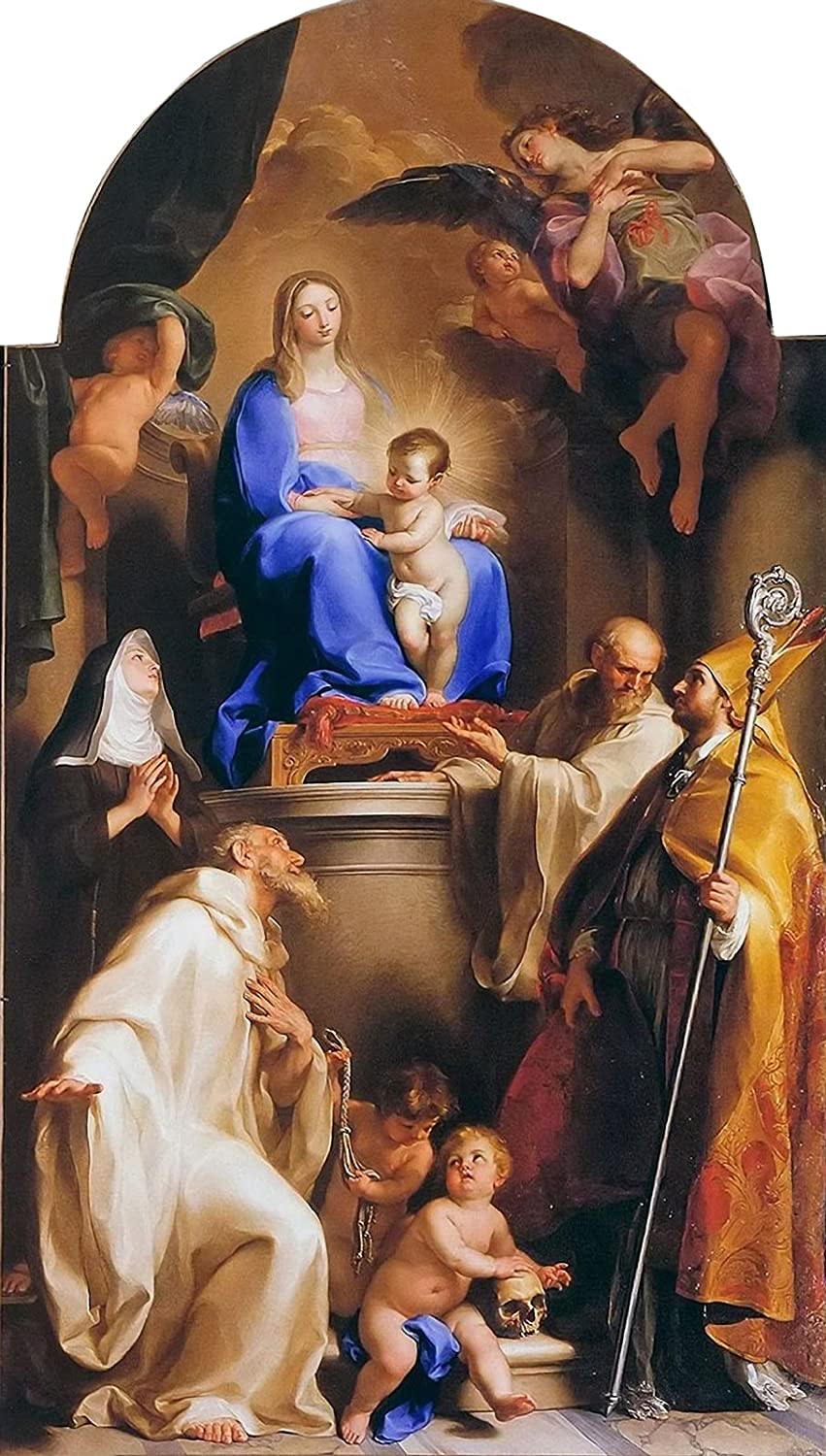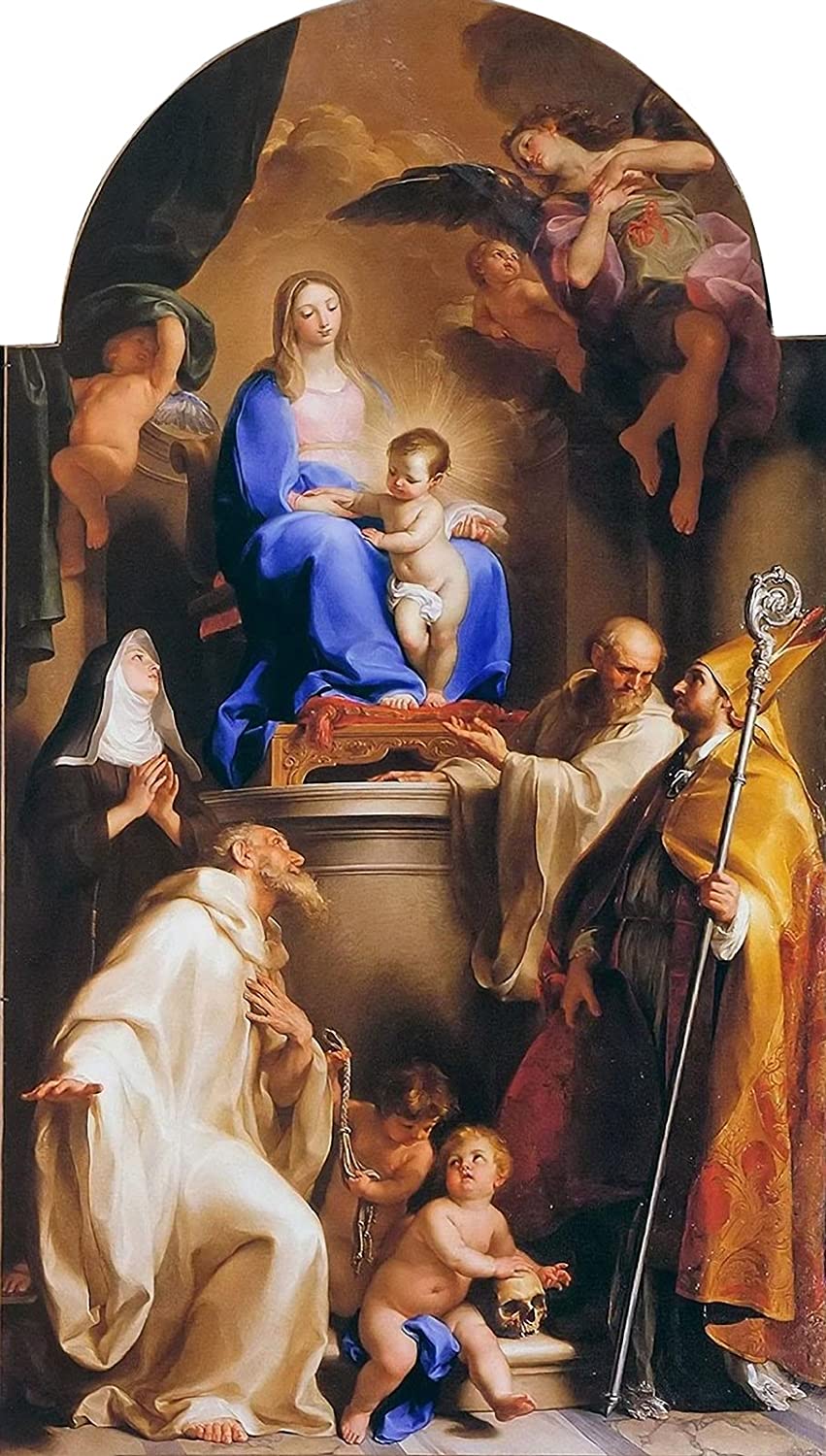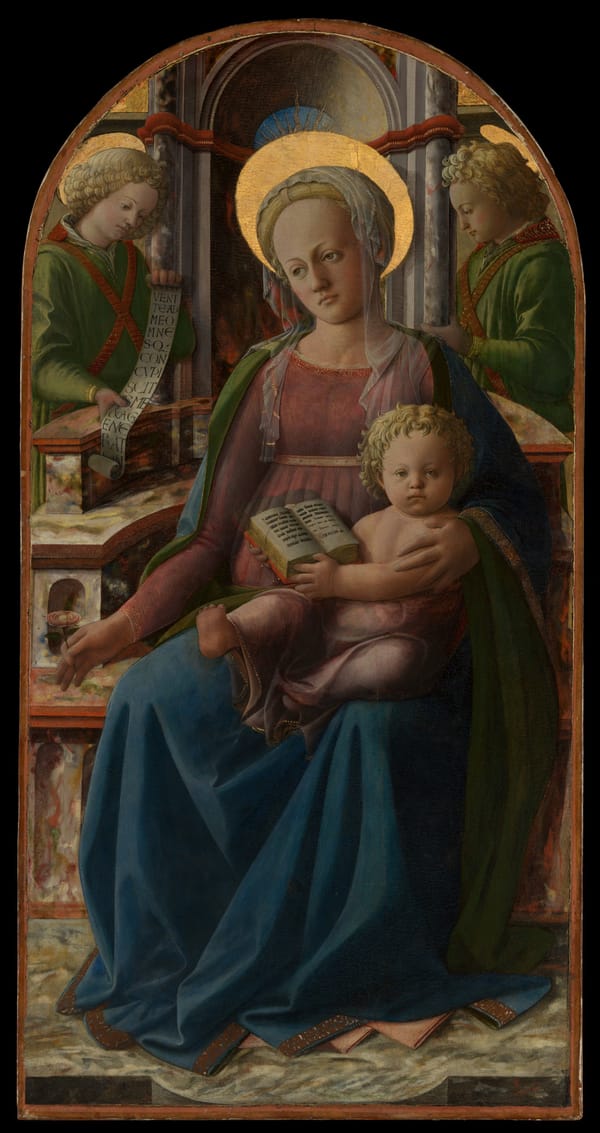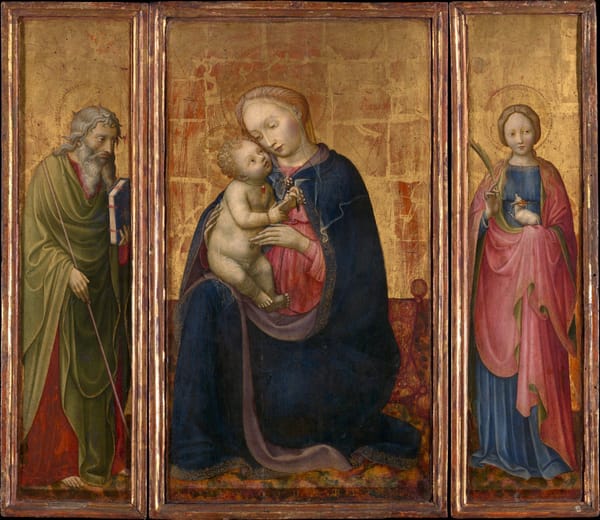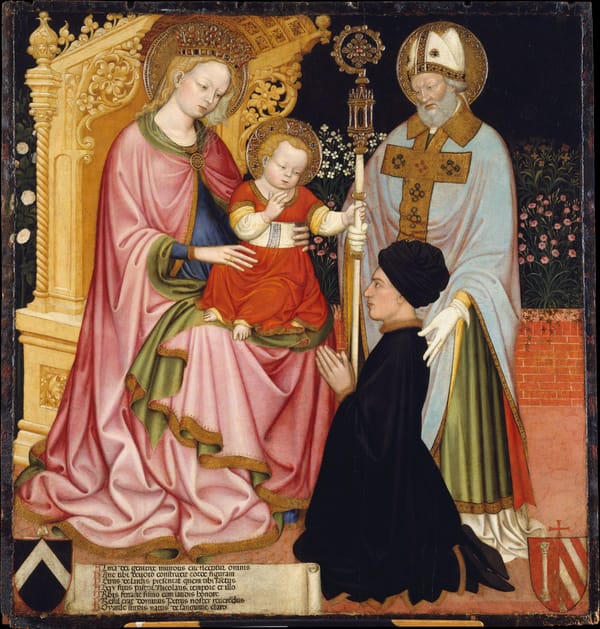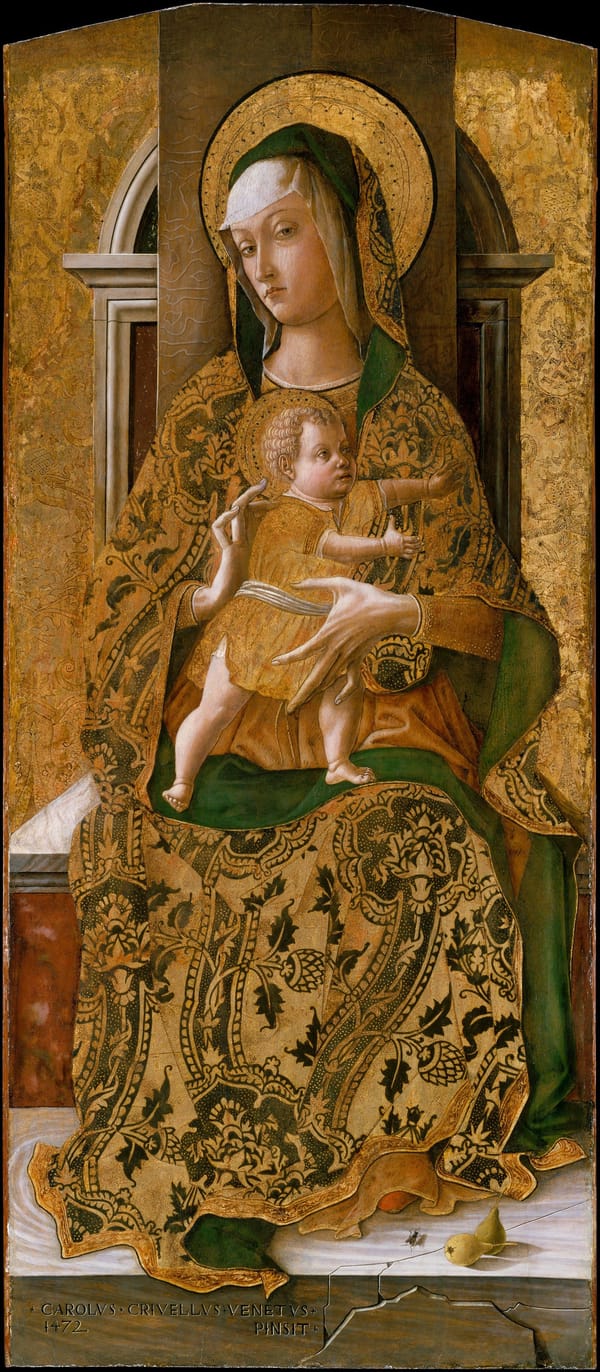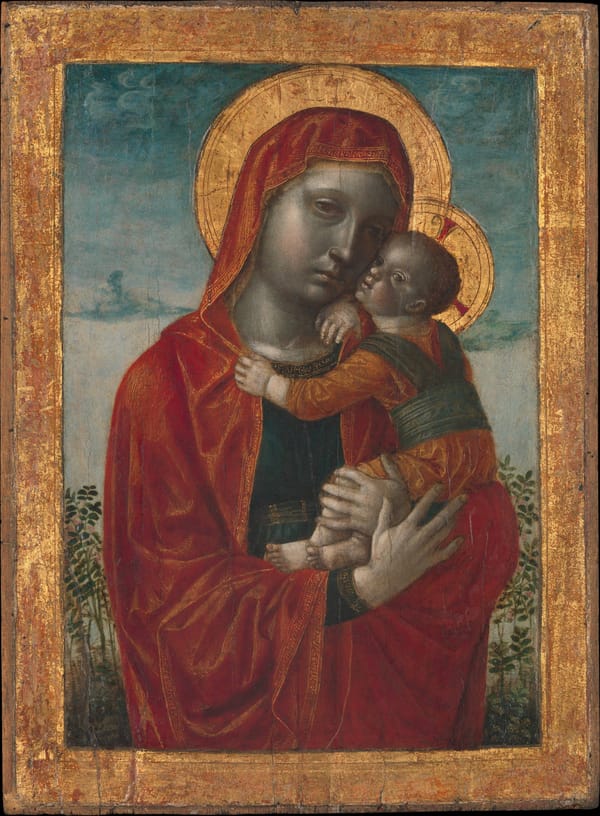About the Image:
The Gabrielli Madonna is a painting by Pompeo Batoni, created in 1732 in the Gabrielli chapel of the Church of San Gregorio Magno al Celio in Rome[1][3]. The painting depicts the Madonna on a throne with child and four saints and blesseds of the Gabrielli family[1][3]. The painting is considered a masterpiece of Batoni's early period and is one of his most famous works[3]. The Gabrielli Madonna is displayed in the Gabrielli chapel of the Church of San Gregorio Magno al Celio in Rome[1][3].
Citations:
[1] https://en.wikipedia.org/wiki/San_Gregorio_Magno_al_Celio
[2] https://picryl.com/media/batoni-gabrielli-madonna-rome-ed7766
[3] http://godsandfoolishgrandeur.blogspot.com/2014/09/pompeo-batoni-gentlemen-in-red.html?m=1
[4] https://artvee.com/dl/madonna-and-child-with-saints-joseph-zacharias-and-elisabeth-and-the-infant-saint-john/
[5] https://romanchurches.fandom.com/wiki/San_Gregorio_Magno_al_Celio
[6] https://www.flickr.com/photos/32357038@N08/6091455292
About the Artist:
Pompeo Girolamo Batoni (1708-1787) was an Italian painter who was the leading portrait painter of 18th-century Rome[3]. He was born in Lucca, Italy, the son of a goldsmith, and his training probably took place there[3]. Batoni's style took inspiration and incorporated elements of classical antiquity, French Rococo, Bolognese classicism, and the work of artists such as Nicolas Poussin, Claude Lorrain, and especially Raphael[1]. He is considered a precursor of Neoclassicism[1]. Batoni invented the type of "grand tourist" portrait, which shows the sitter at ease among the ruins of antiquity, and was very popular among the English[4]. Batoni's pre-eminence in this field was unchallenged, and he was particularly favored by foreign visitors making the Grand Tour, whom he often portrayed in an antique setting[2]. Batoni's works are displayed in various galleries, including the National Gallery in London and the National Galleries of Scotland[3][6].
Citations:
[1] https://en.wikipedia.org/wiki/Pompeo_Batoni
[2] https://artuk.org/discover/artists/batoni-pompeo-17081787
[3] https://www.nationalgallery.org.uk/artists/pompeo-girolamo-batoni
[4] https://www.britannica.com/biography/Pompeo-Girolamo-Batoni
[5] https://www.wikiart.org/en/pompeo-batoni
[6] https://www.nationalgalleries.org/art-and-artists/artists/pompeo-girolamo-batoni
